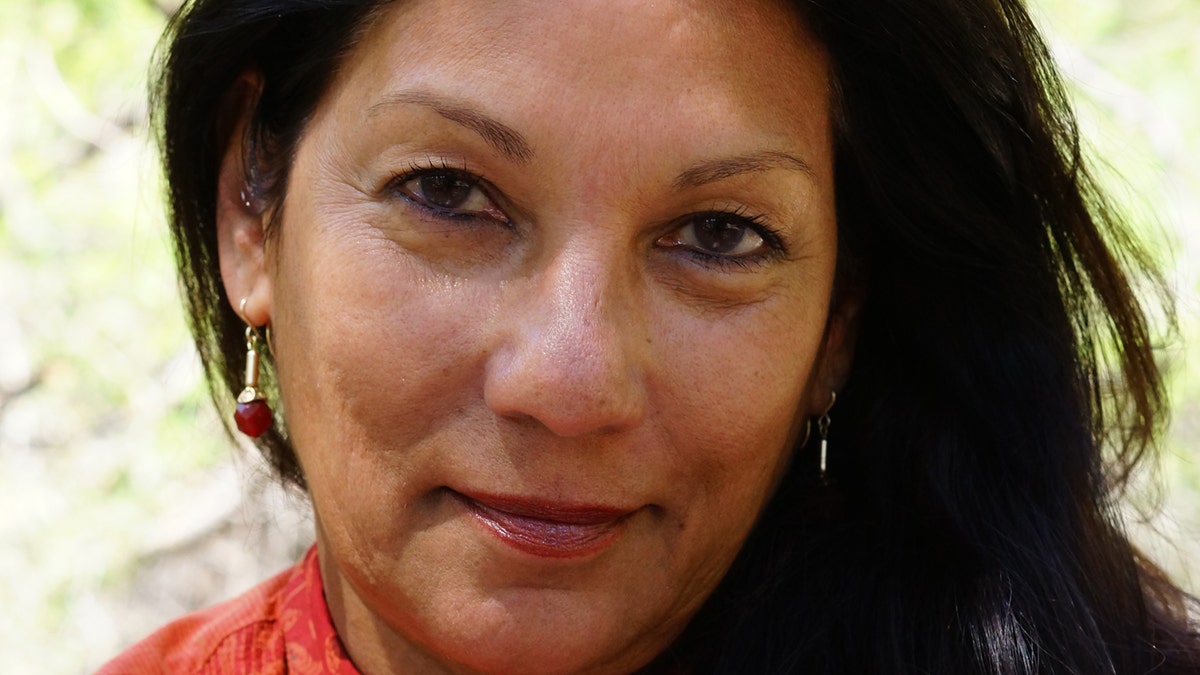
De Sousa faces prison time in Italy for her role in a CIA interrogation.
An "extraordinary" effort by the new U.S. administration prevented former CIA officer Sabrina de Sousa from being the first ever extradited for an alleged CIA misdeed, according to her spokesman.
De Sousa, who was set to be extradited from Portugal to Italy over the kidnapping of a Muslim cleric, won a last-minute reprieve on Wednesday.
Sabrina de Sousa was one of 26 people convicted in absentia for the 2003 abduction of radical Egyptian cleric Osama Mustapha Hassan Nasr, also known as Abu Omar. He was then transported to his native Egypt for interrogation where he says he was tortured.
"I am glad her name will finally be cleared."
Former Rep. Pete Hoekstra, R-Mich., a spokesman for De Sousa -- not the administration -- who was closely involved in the case, said officials within the Trump White House worked to block her extradition.
"I can confirm that this wouldn't have happened without extraordinary help from the Trump administration," Hoekstra told Fox News Wednesday morning.
"I worked with multiple administration individuals and organizations. They were coordinated, professional, responsive, and most importantly effective," he said.
The White House, however, declined to comment on the matter. A White House official referred all the inquiries to the State Department, which would not say what role, if any, it had in the reprieve.
"We have seen reports that Italian President [Sergio] Mattarella has issued a partial pardon for Sabrina De Sousa," Mark Toner, acting State Department spokesperson, said in a statement. "We welcome President Mattarella's action in this case."
The canceled extradition, set to happen Wednesday morning, marks a second legal victory this week for the 61-year-old woman, who holds dual Portugese-U.S. citizenship.
"I am glad her name will finally be cleared," De Sousa's lawyer, Manuel Magalhaes e Silva, told Fox News Wednesday morning.
On Tuesday, De Sousa received a "partial pardon" from Mattarella for her alleged part in a CIA program that kidnapped suspects for interrogation.
Under Italian law, the sentence reduction means De Sousa does not have to spend time in prison, Silva said.
A prosecutor in Milan revoked the detention order, Silva said, adding that Interpol agents who are here to extradite her have been informed and the extradition is no longer happening.
If extradited as planned, De Sousa would have been the first CIA officer and U.S. diplomat imprisoned over the agency's "extraordinary rendition" program.
De Sousa was working in Milan as an undercover CIA officer in 2003 when U.S. and Italian intelligence agents abducted Nasr, also known as Abu Omar, and transported him to his native Egypt for interrogation. The U.S. has termed such abductions “extraordinary renditions.”
The authorized operation was part of the controversial program, implemented under President George W. Bush, and entailed taking terror suspects to countries where torture is allowed.
De Sousa says she was skiing with her son in northern Italy on the day Omar was abducted, and phone records obtained by Italian prosecutors corroborated De Sousa's claim that she was some 130 miles away in Madonna di Campiglio, Italy, chaperoning her son's school ski trip.
Still, Italy brought "broad charges" against her for a plot she says she had no direct part in.
In 2009, Italy convicted De Sousa and 25 other Americans in absentia on kidnapping and other charges related to the abduction, but several have since been pardoned and not one has done time in prison. The Italians also convicted Omar in absentia of "criminal association for the purposes of international terrorism" and sentenced him to six years in prison.
De Sousa described herself as a "scapegoat" for a program authorized by the U.S. government.
De Sousa was detained by the Portuguese judiciary police on Feb. 20. Since then, she has spent eight nights in a prison three hours north of Lisbon -- surrounded by fence and razor wire. De Sousa has been allowed only one phone call a day and was being kept in isolation from other prisoners.
On Tuesday, De Sousa was moved to a detention center in Lisbon under heavy security and told her extradition would likely occur within 24 hours.
De Sousa, who was born in India and holds both American and Portuguese passports, left the CIA in 2009 and moved to Portugal in April 2015 to be near family.
In October 2015, she was detained at Lisbon's airport on a European arrest warrant while attempting to travel to India. She was later released but ordered to remain in Portugal.
The series of events that followed amount to an international legal nightmare.
Italy first sought extradition of De Sousa with the guarantee of a retrial or appeal with new evidence, acknowledging she had been tried in absentia. Based on these guarantees, the Portuguese courts agreed to extradite.
But in June 2016, Italy sent Portugal a letter saying De Sousa's conviction was final, and no retrial would be granted.
In a move that shocked De Sousa and others in the intelligence community, Portugal's high court ordered her immediate extradition.
De Sousa is married to David Ciummo, a 30-year veteran with the U.S. Army.
"It's an outrage," Hoekstra said Tuesday of De Sousa's extradition order. "Between the two of them, they have more than 40 years of service to this country."









































